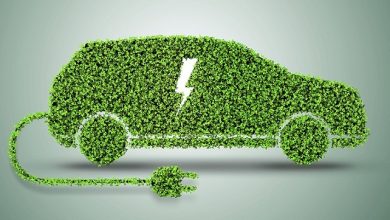How can IoT help in addressing the challenge of charging stations for EVs in India

Soaring fuel prices near INR 100/ litre in major cities is creating a hue and cry across nation. Moreover, the alarming carbon emission rate is burgeoning citizens to opt for an alternative to ‘fuel vehicle’. With government’s push by providing subsidy on purchase of Electric Vehicles (EV), the sector has strted to boom. According to an industry report, EVs market in India is expected to reach USD 47 billion by 2026, with a CAGR of 44 % between 2021 and 2026.
The recent legislation and product introductions show that both the government and the automotive sector are working together to bring EV adoption into the mainstream. Various regulations and incentives are already in place at the government and state levels to facilitate the deployment of charging infrastructure in India. Government has allocated Rs. 1000 crore to deploy public charging infrastructure under the FAME policy. Additionally, government is launching various programmes like: Faster Adoption and Manufacturing of Hybrid and Electric Vehicles (FAME-India), Phased Manufacturing Plan, and Production Linked Incentive (PLI) to ensure boost of EVs manufacturing and usage in the country.
Unfortunately, while various steps are being taken to promote EV adoption by individuals and businesses, the infrastructure to support it is yet to catchup to the expectations of the buyers. Sophisticated and a secure infrastructure is essential to attract consumers and give them confidence in buying EVs in India. As per an industry report over 300,000 charging sites will be required by 2026 to meet the rising demand of EVs in India. Clearly, to achieve this goal, the networks will need to be scalable and span hundreds of different sites with a large number of charging stations. Before the addressable market for electric vehicles matures and becomes viable, charge point operators (CPOs) in India must enable themselves to handle the increased demand.
.
The Internet of Things (IoT) technology can help to reduce this complexity by giving real-time data. Building servers connected to the IoT can help operators grasp real-time load and forecast information for their charging stations (CS). IoT systems collect data from devices, process it for use in apps, and provide real-time data that can be shared with others. Incorporating IoT into the EV ecosystem will enable drivers to quickly locate nearby charging point operators (CPOs) via IoT-enabled applications, reducing charging time, operational costs, and the inconvenience of long lines. Thereby, increasing the overall feasibility of charging stations and customer satisfaction. The equipment in EV charging is public charging stations. They collect and disseminate metering and user data so that users may be billed, and utilities and communications companies can be compensated. Uptime is crucial in both scenarios. IoT systems collect data from devices like charging stations and generate real-time data shared with stakeholders.
Interconnection between charging stations is now advantageous for charging point operators who are newcomers to India’s EV industry. The state governments have included extra incentives for deploying charging infrastructure in their separate EV programmes. The Maharashtra EV policy, for example, offers up to INR 10,000 in incentives for slow chargers, which 2/3W EVs commonly utilise. For captive charging, Delhi state government has mandated that 5% of all parking spots will be blocked to install EV charging stations.
While the revolution of EVs is on for India, it will take another couple of years for the sector to move away completely from fuel to electric mode. It is a watershed moment in the global fight against climate change that we now strive to reach net-zero emissions by 2070 and meet 50 per cent of our electricity needs with renewable energy sources by 2030. While gradual steps have been initiated, major steps towards efficient infrastructure building to support EVs is the hour of the need. Electric, sustainable, renewable, cost-effective, and IoT-driven transportation is the way of the future. The future of EVs in India is bright, and it will play an essential role in the country’s green narrative. By supporting the EV ecosystem with cutting edge IoT technology, Aeris, India has already clocked 120 million kilometres of green driving, and has contributed to India’s goal of being carbon neutral, saving 9100 metric tonnes of CO2. This translates to about six lakh trees. The firm is committed to making India a clean, green, and carbon-free environment.
Author:

Shweta Berry
Director Marketing and Head of Strategic Alliances- Industry & Academia, Marcom, Sales Enablement and CSR Division
Aeris Communications
Shweta Berry has over 21 years of industry experience as is a specialist in Enterprise Technologies Marketing, Communications, Marcom, Sales Enablement, Tech Influencer, Digital Marketeer & a Content Strategist. Shweta is an alumna of IIM CALCUTTA, Grenoble Ecole de Management (GEM) in France and has a Master’s degree from Delhi University. Shweta believes in giving back to the society, meaningfully.
Published in Telematics Wire




